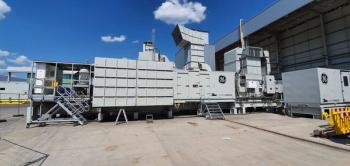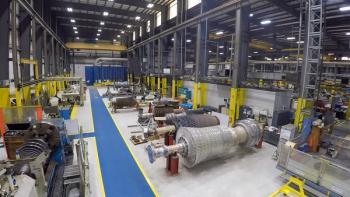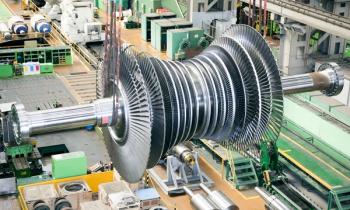
ExxonMobil Unveils Hydrogen-Ready Lubricant: Jenbacher NX Oil 40
Key Takeaways
- Jenbacher NX Oil 40 enhances engine performance, reduces maintenance costs, and extends oil drain intervals, suitable for diverse applications, including data centers and peaking units.
- Developed with Pegasus technology, the lubricant maintains stable viscosity, ensuring engine protection and cleanliness, even in fast- and cold-start scenarios.
Following over 250,000 hours of testing, the Jenbacher NX Oil 40 demonstrated significantly reduced soot formation, lower particle counts, and improved dispersion over oil drain intervals.
ExxonMobil recently launched the
“ExxonMobil’s long-standing collaboration with Jenbacher engines is built on a shared commitment to innovation,” said Janne Haarala, Senior Global Account Advisor, Mobil Finished Lubricants. “With Jenbacher NX Oil 40, we’re setting new benchmarks for oil life and engine cleanliness, helping extend uptime, simplify maintenance costs, and reduce oil usage. I’m confident our continued cooperation will drive even greater success in the future.”
Mobil Finished Lubricants leveraged its Pegasus technology and advanced base oils to ensure that Jenbacher NX Oil 40 maintains stable viscosity over its lifetime, safeguarding natural gas engines while delivering piston cleanliness and extended oil drain intervals (ODIs). In addition to being suitable for data centers and peaking units, the new lubricant can be used in fast- and cold-start scenarios.
“Jenbacher NX Oil 40 demonstrates the synergy between ExxonMobil’s lubrication expertise and our advanced technology and application know-how,” said Luke Pearson, Senior Product Manager for INNIO Group's Jenbacher. “As energy demands evolve, our customers expect to maintain uptime and reliability—factors driving the rigorous field validation program, where the new product demonstrated excellent performance.”
Following over 250,000 hours of rigorous testing, the Jenbacher NX Oil 40 demonstrated low oil consumption and reliable operation at optimized Total Base Numbers, Total Acid Numbers, and oxidation values, enabling extended ODIs without sacrificing engine protection. Also, the lubricant displayed significantly reduced soot formation, lower particle counts, and improved dispersion over longer ODIs. It was tested and validated on gas types with up to 60% hydrogen content.
Baytown Offtake Deal
In May 2025,
ExxonMobil’s Baytown facility, expected to be the largest-of-its-kind once commissioned, will produce low-carbon ammonia and hydrogen with approximately 98% of CO2 removed. Per year, the facility is slated to produce over 1 million tons of low-carbon ammonia and, on a per-day basis, up to 1 bcf of low-carbon hydrogen. The company anticipates a final investment decision in 2025, pending additional governmental policy support and the required regulatory permits.
The Kobe power plant intends to co-fire this low-carbon ammonia supply with current fuels to minimize CO2 emissions by fiscal year 2030. Marubeni will leverage this supply chain to decarbonize various Japanese sectors, such as:
- Power
- Steel manufacturing
- Chemicals
- Transportation
- Other hard-to-abate sectors
Newsletter
Power your knowledge with the latest in turbine technology, engineering advances, and energy solutions—subscribe to Turbomachinery International today.




